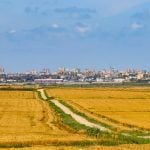Some U.S. states have introduced laws making it illegal to insult farm products. The American Farm Bureau Federation encouraged states to follow the example of Idaho and Georgia, who approved such laws. Washington state also considered similar legislation this spring.
According to a story done for us by freelance writer Steve Krueger, the advocates of the legislation said the farm industry needed “special protection against false accusations in the news media.”
“I would hope this would have a chilling effect on the sometimes irresponsible journalism and reporting,” said Bill Fritz of the Washington State Food Processors Council.
Read Also

Kochia has become a significant problem for Prairie farmers
As you travel through southern Saskatchewan and Alberta, particularly in areas challenged by dry growing conditions, the magnitude of the kochia problem is easy to see.
The main thrust of the U.S. laws, according to the story, is to eliminate the need for producers to prove that statements resulted in specific financial loss.
This could have applied to the negative news media attention surrounding Alar, a chemical used on apples.
While some producers may applaud legislation to make journalists more accountable, there is a dangerous flipside.
Journalists can’t be experts on every subject and watchdogs on accuracy of every source. When opposing scientific views are presented, armed with piles of research, the media can’t correctly identify which view is correct, but can only present the opposing views, hopefully in a balanced manner.
Fear of lawsuits may make credible sources hesitant to present their views. Journalists may also become more cautious about presenting negative publicity on fertilizers, chemicals, animal or plant breeds, biotechnology or anything else related to agriculture.
The missing information may be far more detrimental to farmers – health-wise, socially, environmentally or economically- than the scarred public image of their industry.
















